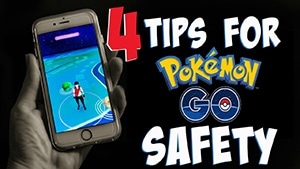

A Guest Post from Dr. Meg Meeker–pediatrician, mother and best-selling author of six books.
A Quick Note from Amy: Here at Positive Parenting Solutions, we know that every family looks a little different. We serve single-parent homes, blended families, multi-generational families, and everything in between.
Our intention with this blog post isn’t to imply that only “dads” can answer these questions below, but rather to offer some insight into the questions that ALL children would like answered from an adult in their life.
My friend, Meg, is simply using the story of her childhood to share this sentiment, and in her case, it involves her dad. But if you feel that might be triggering to you, please feel free to check out other posts in our Learning Center.
When I was 8 years old, my father took me to work with him on Saturday mornings to Mass General Hospital in Boston. I would sit at his gigantic desk, spin in his chair and when he finished, we would walk to a pastry shop and have a snack.
He ordered coffee and I drank hot chocolate. As I look back, it feels like my father took me every Saturday, but truth be told, he probably only took me four or five times. But on those Saturday mornings, I felt important and loved.
Those feelings stayed with me for decades and shaped how I saw the world and myself. Your father shaped who you became – for good or ill.
Now, your son or daughter looks to their father to find simple answers to three critical questions that will shape the men and women they become.
And here’s the good news: you, as your children’s mother, can help him answer those questions in a positive way (even if you are divorced.)
If your children don’t have a father in their lives, you can help a father-substitute like a grandfather, uncle or stepfather answer them too.
Question 1: Dad, how do you REALLY feel about me?
Children read their fathers for clues about what he feels about them. They do this because they have a primal need to connect with and feel loved by their dads.
Once they realize how he feels about them, they internalize those feelings and their identity takes shape.
Think back when you were a child. If you felt loved by your dad, your self-esteem soared but if you felt rejected or shamed, you still live with that pain.
Today, your children look to their father to figure out how he really feels about them. Fathers may say they love their children, but this doesn’t necessarily mean that those kids feel loved.
When he walks into a room, they watch his body language, listen to the tone of his voice and hang on his words. Why? To find out what he feels about them at that very moment.
If they feel loved, they may run out and play, do their homework, or ask him to go for a bike ride. If they feel unwanted, rejected or unloved, they will hide from him and blame themselves for his feelings for a very long time.
As mothers we can help fathers answer this critical question. First, we can encourage them to verbalize “I love you” to each of our kids. Some men have difficulty saying the words because they never heard it from their dads.
If your husband struggles with saying things to your kids, encourage him to write a handwritten letter and put it in your child’s backpack or leave it on the bed.
I guarantee–when your child sees her father’s handwriting on the paper, she will never throw the letter away. And when you encourage your husband (and especially your ex-husband) to tell your kids he loves them, never use a demeaning or critical tone. Men only respond well if they feel respected and appreciated.
Question 2: Dad, what do you BELIEVE about me?
Just as children read their fathers for clues about how he feels about them, they search for answers about what he believes about them. You did this as a child.
Your father either made you feel smart, capable and strong, or he made you feel stupid, incapable and insignificant. And chances are, you feel that way today.
When I was 21, I applied to many medical schools and was rejected by each one. I felt despondent and went to live with my parents until I figured out a plan B.
One evening I passed by my father’s study and overheard him talking to a friend on the phone. I heard him say, “My daughter Meg will be going to medical school in the next couple of years.”
I was stunned and thrilled. More profoundly, I felt in that moment that if my Dad said I was going, it was a done deal. That’s the power in a father’s words.
His words changed my life in about 20 seconds because he communicated that he believed in me more than I believed in myself. Every child needs to learn from his father–that he, their dad, believes that they can lead a successful life.
We, mothers, can teach fathers how crucial their beliefs about their kids are because they-dads-have the power to make or break a child’s self-esteem.
The best way to do this is by describing to your husband how your kids respond when they feel he believes in them. You could say, “When I saw Johnny miss that goal and you put your arm around him and said, ‘keep your chin up pal’ I saw his whole demeanor change. Hearing that you believe in him made him go from being sad to hopeful in a quick minute. Thank you.”
Question 3: Dad, what are your HOPES for me?
Every one of us needs hope in order to get through daily struggles. So do our kids.
One of the best ways to help children stay hopeful is to talk with them about their future. When fathers chat with kids about what life will be like in their twenties, thirties and forties, fathers communicate that they know the child can have a full and successful life.
Most kids don’t think about life past the age of 25. Many believe that all the fun must be had before then so they often pack their teen years with crazy and often dangerous behaviors.
One of the best things a father can do is dream with his kids. Fathers shouldn’t set specific expectations; rather they should help the child craft the specifics of his future. Then, he can let his child know that his job as a father is to link arms with him and help him get there.
As your child’s mother, you can encourage your husband to dream with your kids. Let him know how important his words are to them and that when he tells them he’ll be with them for the long haul, they see their futures as bright and promising.
Every child wants and needs more from his or her dad. And we mothers have tremendous influence over how our child’s father communicates to our kids. We can choose to help them love and support our kids by being respectful, kind and affirming when we talk to them or we can tear the bond they have with our kids by criticizing and shaming them.
One of the best gifts that we mothers can give our children is a healthier relationship with their fathers and every one of us can do that–married or not.
Final Thoughts from Amy
We are so grateful to have Meg share her wisdom on our blog! I know parenting can be tough–and it can be even more difficult when parents disagree on discipline.
But, by encouraging your children’s father (or father-figure) to patiently and openly answer these 3 questions–both with their words and with their actions–you will continue to increase your child’s self-esteem and capabilities.
If you feel like your child is constantly weighted down by fear, insecurities, and anxiety–or if they are acting out from a place of fear and insecurities (which is more likely the case)–I’d love for you to JOIN ME FOR A FREE ONLINE CLASS.
The Positive Parenting techniques I teach all significantly increase a child’s feelings about themselves and their family. By meeting each child’s basic needs for belonging and significance you’ll see a vast improvement in the way your child carries himself.
As always, wishing you the best on your parenting journey!
Title image: George Rudy / Shutterstock https://www.shutterstock.com/photos
About the Author

Meg Meeker, MD is the author of the best-selling Hero: Being the Strong Father Your Children Need.
Dr. Meeker
is a pediatrician, who has practiced pediatric and adolescent medicine for 30 years. She is the author of the on-line
course The Strong Parent Project: The 12 Principles of Raising Great Kids as well as six books including
the best-selling Strong Fathers, Strong Daughters: Ten Secrets Every Father Should Know;
Boys Should Be Boys: 7 Secrets to Raising Healthy Sons; Your Kids at Risk: How Teen Sex Threatens Our Sons and Daughters; The 10 Habits of Happy Mothers: Reclaiming Our Passion, Purpose and Sanity; Strong Fathers, Strong Daughters: The 30 Day Challenge and Strong Mothers, Strong Sons: Lessons Mothers Need to Raise Extraordinary Men, (Ballantine) April 2014. She is a popular speaker on pediatric health issues and child-parent relationships.





 Rachel Macy Stafford is the New York Times bestselling author of
Rachel Macy Stafford is the New York Times bestselling author of 






